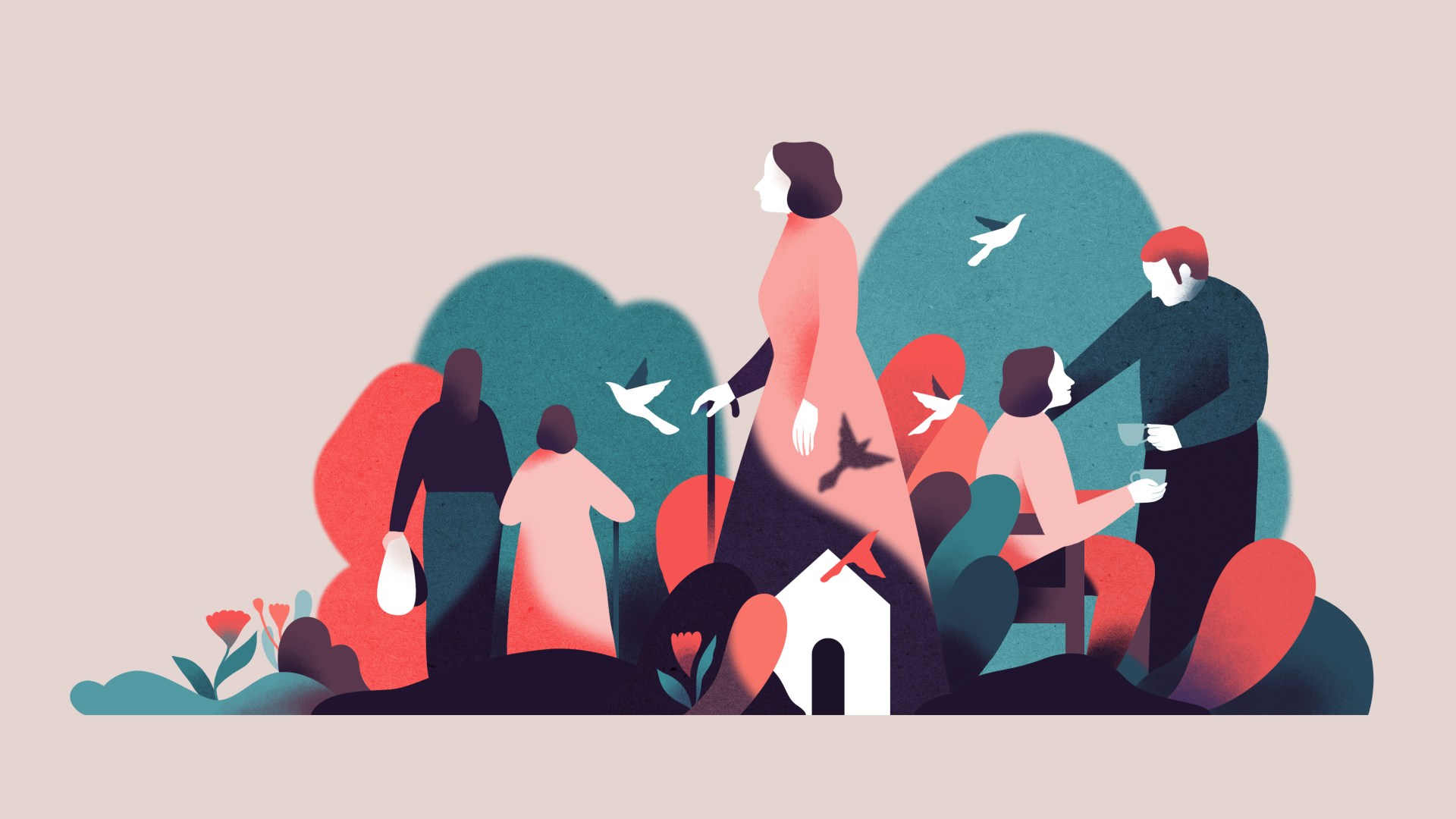Humanity has long pined for the power to stay young. Folklore is full of heroes seeking springs of immortality or a fountain of youth, but these fantasies are not confined to the pages of literature.
In modern life, our lust for youth takes the form of everything from Botox to cryonics. In our anti-aging pursuits, we are inadvertently relegating our elders to a second-class status and ignoring the many benefits of honoring the elderly among us. The 2020 National Poll on Healthy Aging found that 82 percent of adults aged 50–80 experience ageism in their day-to-day lives. The World Health Organization reports that up to a third of older citizens report feeling lonely.
Prejudice against aging doesn’t just hurt feelings or harm social relationships. Ageism can also lead to worse outcomes in both mental and physical health conditions, even leading to shorter life expectancy. Cultural disdain for aging harms individuals, families, and society as a whole.
The Christian faith calls for another way. Throughout the Bible, God casts a vision for including the elderly in all aspects of community life. Experts in elder care are finding that the biblical vision not only benefits the elderly, but young people as well.
“It goes both ways,” says David Phillips, CEO of Ebenezer Senior Citizen's Home in Israel. “Listening to the elderly serves them in a spiritual way. And the young listeners can learn from them.”
Learning to Listen
More than one in three American adults aged 50–80 report feeling a lack of companionship. As their ability to be productive diminishes, the world often leaves them behind. But the scriptural vision for the elderly is not one that reduces humans to their utility but to their essence as image bearers of God.
In other words, the reason people matter is not because they have something to contribute. They matter because they are created to reflect God in the world.
Proverbs 16:31 says that “gray hair is a crown of splendor.” Behind those gray hairs are decades of stories and experiences, the telling of which can be mutually beneficial. Take Larissa Suabashi, a resident at Ebenezer, for example. A Holocaust survivor, Subashi has stories that are heartbreaking and harrowing. But she also tells stories of hope and plays the violin in a way that brings God’s beauty to mind.
For the elderly, telling stories about their lives is linked to improvements in overall well-being, higher quality of life, and reduction of loneliness. Young people who learn to ask good questions and listen patiently to the stories of the elderly benefit from building intergenerational social connections and have the opportunity to play a role in preserving history and culture.
In America, perhaps working toward well-being could be as simple as driving an elderly neighbor to a doctor’s appointment, mowing a lawn, or running a few errands. It may look like occasional evenings around the dinner table, in which stories are repeated as memory fails. In many ways, caring for the elderly is simply loving our neighbors as we love ourselves: paying attention to them and acting on their behalf.
When encouraging volunteers at Ebenezer Senior Citizen’s Home in Haifa, Israel, Phillips emphasizes the power of listening. Many of the residents have experienced severe trauma in their lives, and telling stories to a listening ear is a powerful processing tool.
“We still have eight Holocaust survivors,” explains Phillips. “And we have a second generation of traumatized people of the Holocaust.”
Phillips says that listening “brings back the central vision of dignity” for the people telling their stories. Those stories do not end with pain and trauma—many of Ebenezer’s residents have also shared their personal histories as accomplished artists and musicians. In sharing those passions, they have found new purpose in the twilight years of their life—like Subashi, or Juan Onasiss who draws and paints stunning pieces despite a disability, or Antoinette Bermond, who has published two books since entering the Ebenezer Home.
Working Toward Well-Being
As we seek ways to honor the elderly, it is likely needs will arise. Maybe they can no longer maintain yardwork or housekeeping. Perhaps a trip to the grocery store feels daunting. Christians can find meaningful, tangible opportunities for offering help and support to our elderly neighbors.
Phillips points to Exodus 22:22–23, in which God says, “Do not take advantage of the widow or the fatherless. If you do and they cry out to me, I will certainly hear their cry.”
Phillips, who has been known to enter homes filled with filth, and even dumpsters, to rescue people in need, thinks of it like this: “When we accept someone into Ebenezer, sometimes I see widows who have nothing. They have nothing left. We take them in, and…it’s about doing the will of God and what he intended for his people.”
At Ebenezer, the opportunity to work toward well-being covers all aspects of life—from the physical and mental to the emotional and relational. As the only senior home run by and for Chrstians in Israel, Ebenezer houses both Jewish and Arab people. Their backgrounds are filled with memories of strife between the two ethnic groups. And yet, Phillips says that at Ebenezer, there is a “peace agreement in the blood of Christ between Arab and Jewish believers.”
Faithful to the Forgotten
In Paul’s letters to Timothy, we read an invitation for young people to treat their elders with kindness, respect, and dignity. While honoring the elderly with our time may not seem intuitive or take priority in our busy lives, God’s heart is that Christians honor all of humanity. Creating community among those with strength and those with wisdom is a beautiful picture of heaven on earth.
Ebenezer Senior Citizen’s Home is a shining example of this type of care. To hear more stories of Ebenezer's work and to contribute to their vital care for seniors, sign up for their newsletter.
Posted